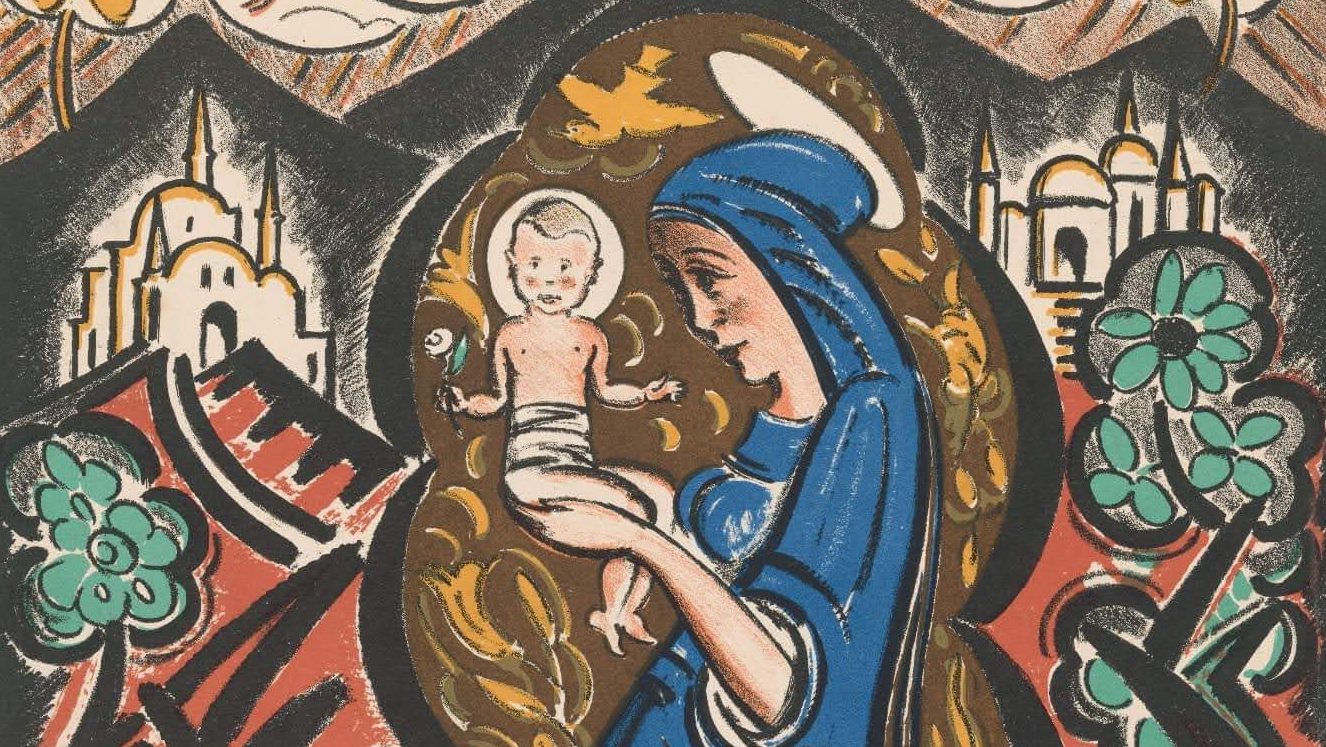The Mother of the Son
Solemnity of Mary, Mother of God

This Sunday is the octave, or eighth day, of Christmas. Eight days after birth is when Mary and Joseph would have had their child circumcised and when he would formally be given his name, Jesus, which means “God Saves.” The octave day of Christmas is also when the Church celebrates the great solemnity of Mary, Mother of God, which is my favorite title for the Blessed Virgin (not just because it is the name of our parish).
We venerate the Blessed Mother under so many titles. Some refer to specific apparitions, such as Our Lady of Guadalpue or Our Lady of Fatima. Some refer to Mary’s role as intercessor, such as Our Lady Help of Christians or Our Lady Undoer of Knots. Sometimes her titles refer to specific Marian doctrines taught by the Church, such as the Immaculate Conception or Queen of Heaven. But out of all the titles by which we venerate the Virgin Mary, the most ancient and profound is the one we celebrate today — the Mother of God, in Greek theotokos (literally “the one who bore God”).
Because it is the oldest Marian title, it’s no surprise that it was also the first one that the Church had to defend. It’s not uncommon today for Protestants to challenge some of the titles Catholics bestow upon Mary, saying that we esteem her too much. But it was a different situation in the fifth century when some objected to calling Mary the Mother of God. Their problem was not what the Church believed about Mary but what the Church believed about Jesus. Certain heretics denied the dogma of the hypostatic union. This is the teaching that Jesus possesses both a full human nature and a full divine nature, and that these two natures are united in his one Person.
Around the year 429 a heretical bishop named Nestorius taught that it was permissible to call Mary the “Mother of Jesus” or the “Mother of the Christ,” but not the “Mother of God.” She was only the mother of Jesus’ humanity, not his divinity. But in an Ecumenical Council at Ephesus in 431, the Church ruled that you cannot separate the divine and human aspects of Jesus in this way. She taught that it is not only proper but necessary to recognize Mary as the “Mother of God” because her Son, Jesus, is God. Mary is not merely the mother of Jesus’ human nature. That’s not how motherhood works. What was conceived in her womb by the Holy Spirit was not a “nature” but a person. The child that Mary carried in her womb for nine months and gave birth to in Bethlehem is in fact “God from God, light from light, true God from true God.” Only by upholding this title of Mary do we profess the truth about her Son.
This is why, to me, this particular title of Mary exemplifies her role in the life of Christians, which is to point us to her Son. At the Wedding Feast at Cana, she told the waiters, “Do whatever he tells you” (Jn 2:5). This is what Mary does for us. She points to Jesus and says, “Do what he tells you. Listen to him. Trust him.”
Mary shows us what can happen when we fully trust in God. Think about it. How did this poor Jewish girl from Nazareth manage to become the Mother of God? She said “yes” to God’s will for her. At the Annunciation, Mary said to the angel, “let it be done to me according to your word” (Lk 1:38), and she meant it with all of her being. She held nothing of herself back from the will of God, and at her “yes,” the Word became Man and dwelt among us. The Son of God became the Son of Mary.
Mary has the singular privilege of bearing Jesus in her womb and nursing him at her breast, but every Christian may have a share in Mary’s motherhood if we similarly open ourselves up to God’s will. Jesus teaches that “whoever does the will of my heavenly Father is my brother, and sister, and mother” (Mt 12:50). Mary is the model of the Church because in the Church we all have the opportunity to be mothers of God.
The incarnation that we celebrate at Christmas — God dwelling among us — is the ongoing reality of the Church. Every day, at every Mass, the Word of God becomes flesh on our altars. Every time the priest speaks the words of Christ, “This is my body,” the bread and wine we offer becomes Emmanuel, God with us. Every time we receive Holy Communion, the Body of Jesus comes to dwell in our bodies, just as he dwelt for nine months in the body of the Virgin.
Sharing in the motherhood of Mary means sharing in her acceptance of God’s will. Let us imitate her openness when she said, “Be it done unto me according to your word.” As we continue our celebration of Christmas, let us imitate Mary’s devotion in how she kept these things and reflected upon them in her heart (cf. Lk 2:19). Then we may share in her blessing by becoming mothers, brothers and sisters of our Lord, co-heirs to God’s heavenly kingdom (cf. Gal 4:7).
Mary, Mother of God, pray for us.

